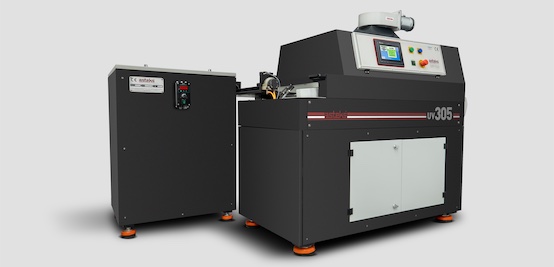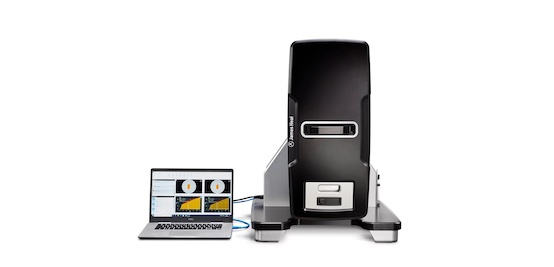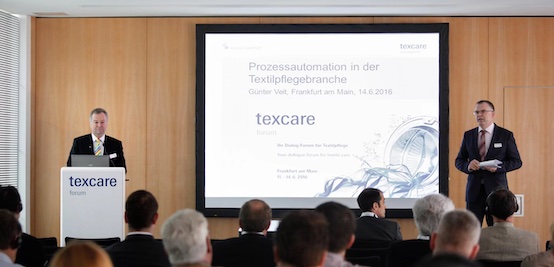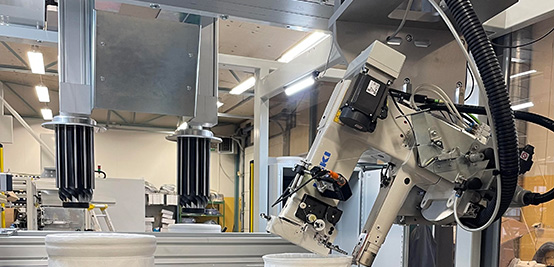#Other suppliers
Textechno receives the DIN innovation award 2016 at Hannover Messe
In the automated production of carbon- or glass fiber-based woven and non-crimp fabrics for the aerospace or automotive industry, a major problem consists in undetected errors as they occur during the three-dimensional deformation for the final component (draping). The method described in DIN SPEC uses i.a. a high-resolution camera in conjunction with an image analysis, detecting imperfections while draping. This method provides values with which the properties of the textile fabric can be characterized and it ultimately helps selecting the right fabric material for the appropriate composite.
Dr. Ulrich Mörschel, CEO of Textechno explains: “With our products, we contribute to avoid conflicts between suppliers and end-users wherever possible. The development of the DIN SPEC has procured us a fast possibility to set a new and useful standard for the entire composite industry, where there are not yet many standards set.“
Dr. Michael Effing, CEO of AMAC and advisor for Composite Materials to Textechno adds: “The parameters generated by DIN SPEC 8100 represent a hudge added value for the entire composite industry. This is to ensure that carbon- and glass fiber woven and noncrimp fabrics for applications in high-performance components like rotor blades or structural components in Automotive and Aerospace possess the required material characteristics.“
In order to further boost the development of pioneering testing methods, the partners SAERTEX, GROZ - BECKERT and FTA Albstadt waive their shares of the prize money so that Textechno can handover a voucher worth 5000 EUR for research to the Bremen Fibre Institute.













